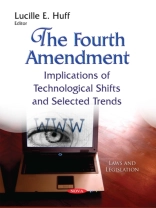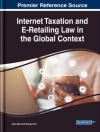Before there were emails, instant messaging, and other forms of electronic communication, it was much easier for the courts to determine if a government investigation constituted a Fourth Amendment "search." If the police intruded on your person, house, papers, or effects-tangible property interests listed in the text of the Fourth Amendment-that act was considered a search, which had to be "reasonable" under the circumstances. However, with the advent of intangible forms of communication, like the telephone or the Internet, it became much more difficult for judges to determine when certain surveillance practices intruded upon Fourth Amendment rights. With these legal, social, and technological trends in mind, this book explores the third party-doctrine, including its historical background, its legal and practical underpinnings, and its present and potential future applications. It explores the major third-party doctrine cases and fits them within the larger Fourth Amendment framework. It surveys the various doctrinal and practical arguments for and against its continued application. Lastly, this book describes congressional efforts to supplement legal protection for access to third-party records, as well as suggesting possible future directions in the law.
Lucille E Huff
Fourth Amendment [PDF ebook]
Implications of Technological Shifts and Selected Trends
Fourth Amendment [PDF ebook]
Implications of Technological Shifts and Selected Trends
Mua cuốn sách điện tử này và nhận thêm 1 cuốn MIỄN PHÍ!
định dạng PDF ● Trang 163 ● ISBN 9781633216419 ● Biên tập viên Lucille E Huff ● Nhà xuất bản Nova Science Publishers ● Được phát hành 2014 ● Có thể tải xuống 3 lần ● Tiền tệ EUR ● TÔI 7224777 ● Sao chép bảo vệ Adobe DRM
Yêu cầu trình đọc ebook có khả năng DRM












